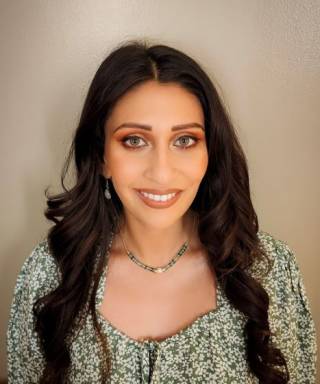
Nationality: British-Bangladeshi
Thesis: Is unpaid work and care work a burden? Investigating the value of unpaid work through Bangladeshi women’s experiences
Key Topics: Gender, unpaid care work, social and gender norms, feminist economics
Profile
My PhD research seeks to critically analyse contemporary development discourse and policies around reducing unpaid work for women in developing countries, so they are able to do more paid work. Specifically, this study seeks to interrogate the current assumption that Bangladeshi women view unpaid work/care work as a burden. My research posits this assumption in development can be traced to Western hegemonic ideals, and liberal feminism which does not fully consider the lived realities, identities, or values of women in developing countries.
Interest around women’s unpaid work drawing on feminist economic research has grown, and is reflected in recent global policies such as SDG 5.4 which seeks to ‘Recognize and value unpaid care and domestic work’. This has led to a huge increase in programmes and policies being developed towards this target within the development ‘industry’. However evidence of women’s unpaid work ‘burdens’ in developing countries are generally based on aggregated time-use data which is collected infrequently, or specific studies of very poor rural women. Little qualitative research has been done to understand how women actually experience and value both types of work, leading to the question of whether current policies and interventions are context-appropriate. This is pertinent given the quality of available jobs for women in the countries being targeted are generally extremely poor and exploitative (e.g. precarious low-paid work within manufacturing industries). My PhD will employ in-depth qualitative methods to engage with Bangladeshi women as a case study. I will explore how women themselves experience paid and unpaid work, exploring whether pecuniary values are appropriate for care work. I will do this within a social norms framework, with a view to understand how their views have formed (i.e. are they more influenced to prioritise unpaid work due to hegemonic norms, or are they driven by other intrinsic values such as fulfilment or joy?).
Given renewed focus to ‘decolonise development’, gender planners and practitioners must take nuanced approaches that consider how to support women to meet not only their needs/interests as perceived by outside actors, but also themselves. This research will build on critical work being done by development academics and practitioners to recognise, redistribute and reduce high levels of unpaid work, and increase women’s opportunities to undertake paid work. However, as many academics have argued, the right to care, and be cared for, is of paramount importance for individual well-being, as well as for wider society and the economy. Arguably many Global North countries where much of this research originates from, are facing a ‘Crisis of Care’, highlighted by the pandemic. Feminist researchers who aim to inform policies/interventions that seek to change social norms must ensure their epistemological approaches are sound. To avoid criticism for ethnocentrism, research in this area should engage with those they seek to impact in meaningful ways, to understand their contexts and priorities; this research therefore will provide new qualitative evidence with this aim.
I have around 10 years work experience in development including six years at Overseas Development Institute (ODI) where I managed multi-year research programmes around economic transformation in the Economic Development team, and then on gender norms in the Gender & Social Inclusion team. I previously worked as a management consultant in the PwC International Development team and established my consulting company, OrenDev Consulting in 2019. Other development work experience includes the United Nations Department for Economic & Social Affairs (DESA), various NGOs in the UK, Thailand and the Netherlands, and in financial services. I hold a BSc in Economics from SOAS and an MSc in International Development from the University of Amsterdam. I am also a qualified Prince 2 Practitioner. I am grateful to have been awarded the Bartlett Promise Scholarship to fund this research.
Primary supervisor: Julian Walker
Secondary supervisor: Jordana Ramalho
Web profiles: https://www.linkedin.com/in/sonia-hoque-118bb556/
 Close
Close

